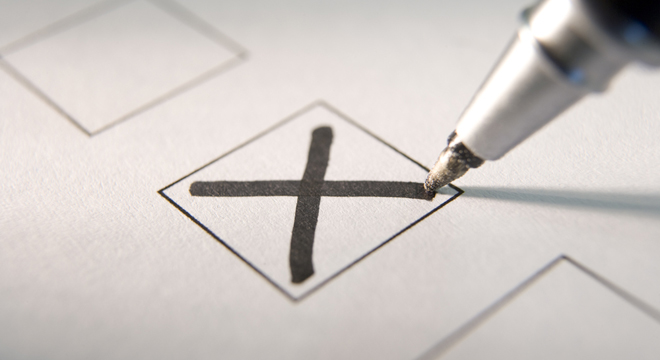Dean Chambers, the man behind “unskewed polls,” a site that attempted to re-weight polls that Chambers thought oversampled Democrats, admitted to his model’s shortcomings on Wednesday.
“Most of the polls I ‘unskewed’ were based on samples that generally included about five or six or seven percent more Democrats than Republicans, and I doubted and questioned the results of those polls, and then ‘unskewed’ them based on my belief that a nearly equal percentage of Democrats and Republicans would turn out in the actual election this year,” Chambers wrote on The Examiner website. “I was wrong on that assumption and those who predicted a turnout model of five or six percent in favor of Democrats were right. Likewise, the polling numbers they produced going on that assumption turned out to be right and my ‘unskewed’ numbers were off the mark.”
Leading up to Election Day, Chambers took polls that showed a Democratic Party identification advantage and adjusted them to reflect more Republicans in the electorate. As of late September, the “unskewed” site showed Mitt Romney leading President Obama by 7.4 points. In Chambers’ final projection, he estimated Romney would win 51 percent of the popular vote and 275 electoral votes. That, of course, didn’t happen. Obama won the popular vote and 303 electoral votes to Romney’s 206 (Florida has yet to be decided).
 Initially, Chambers relied on Rasmussen’s numbers on party identification to re-weight the polls. Later, he used his own numbers. “I think (Rasmussen’s) surveys have been discredited as much as mine,” Chambers told TPM on Thursday, adding that Scott Rasmussen has been in the business for much longer than he has. Exit polls showed Democrats held a 6-point party identification advantage over Republicans on Election Day.
Initially, Chambers relied on Rasmussen’s numbers on party identification to re-weight the polls. Later, he used his own numbers. “I think (Rasmussen’s) surveys have been discredited as much as mine,” Chambers told TPM on Thursday, adding that Scott Rasmussen has been in the business for much longer than he has. Exit polls showed Democrats held a 6-point party identification advantage over Republicans on Election Day.
The “unskewing” movement became a cottage industry on the right in the lead-up to the election. Anticipating conservative criticism over one of its final polls before the election, NBC News even offered an “unskewed” take on its survey. In September, when polls showed Obama consistently ahead of his Republican challenger, Texas Gov. Rick Perry (R) endorsed Chambers’ site on Twitter, praising the site’s “unfiltered” and “unskewed” information. Chambers, in the end, offered congratulations to those who got it right.
“There were others, who predicted far more favorable outcomes for Obama, that were closer than I was in getting it right. Larry Sabato of the University of Virginia Center for Politics predicted Obama would win with 290 electoral votes. He was only wrong in predicting Romney would win the 42 electoral votes of Florida and Virginia. Nate Silver of the New York Times blog fivethirtyeight.com predicted all 50 states correctly and projected Obama to win the states exactly as he did. I congratulate them both on getting it right and Nate Silver for going 50 for 50 in getting all the states right in the presidential election.”
Chambers will continue to post articles on Examiner.com, he said Thursday. And he’ll keep the “unskewed” site up, for archiving purposes, if nothing else. In the future, though, Chambers might not be so quick to “unskew” the polls. “I will only ‘unskew’ any polls in the future if it is substantially unskewed,” he said.






